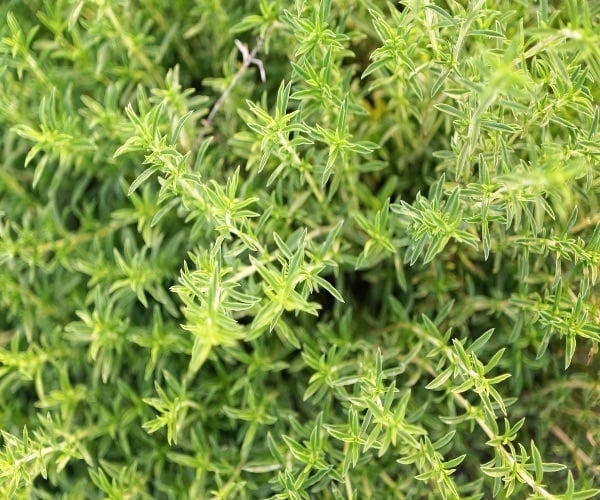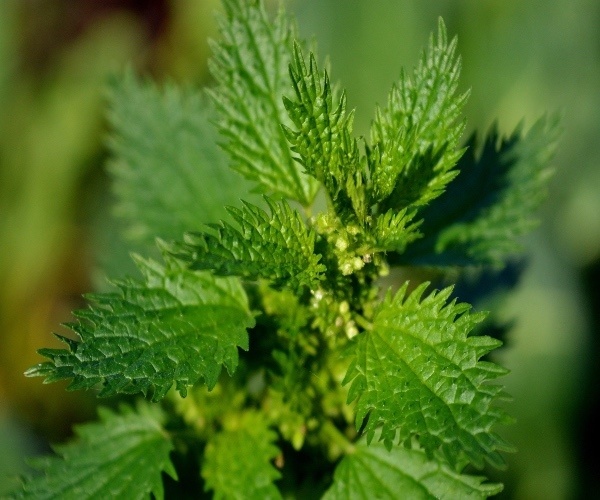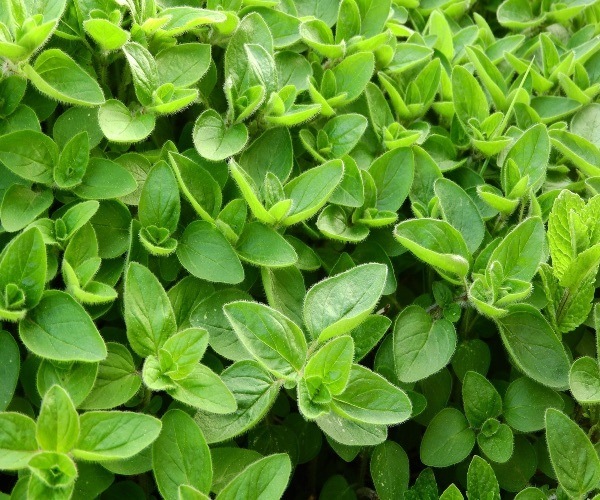5 healthy Greek herbs to include in your diet
Greece provides an ideal environment for herbs, which are found flourishing on mountain slopes and green fields. These beneficial plants have been known for centuries and used in cooking and are well known for their flavors and for their healing properties. Below are some of the most powerful Greek herbs to include in any diet.
Yarrow
Yarrow is a plant that grows in Europe, Asia, and North America with properties known since ancient times. It is considered as a strong remedy against heavy sweating and if drank hot it can detoxify the body. Furthermore, yarrow is a natural remedy for lowering the blood pressure and improving blood circulation and it is also believed to help against any kind of internal bleeding.
 Summer savory
The Ancient Greeks used summer savory to make flavored wine with this herb. However, during the Middle Ages, this herb was used to heal sore throats, coughs, and toothaches. In modern herbal medicine, it is mainly used for its healing properties of the digestive system as it also stimulates the appetite and helps in the treatment of diarrhea, bowel spasms, colic pain, and nausea. Finally, another benefit of the summer savory is that it can also be applied externally as an antiseptic on wounds and insect bites, offering immediate relief.
Summer savory
The Ancient Greeks used summer savory to make flavored wine with this herb. However, during the Middle Ages, this herb was used to heal sore throats, coughs, and toothaches. In modern herbal medicine, it is mainly used for its healing properties of the digestive system as it also stimulates the appetite and helps in the treatment of diarrhea, bowel spasms, colic pain, and nausea. Finally, another benefit of the summer savory is that it can also be applied externally as an antiseptic on wounds and insect bites, offering immediate relief.
 Rock rose
Rock rose grows wild in many parts of Greece, but mainly in Crete. This plant has attracted the scientific community’s interest due to all of its amazing properties. rock rose has been extensively used for its medical properties such as high anti-inflammatory and anti-diarrhea action. It also acts as an antispasmodic and expectorant. This herb controls bleeding and has antibiotic effects, as well. It protects the heart four times better than red wine and it is a powerful antioxidant. It is also used to heal skin issues, new or old scars, and wounds.
Rock rose
Rock rose grows wild in many parts of Greece, but mainly in Crete. This plant has attracted the scientific community’s interest due to all of its amazing properties. rock rose has been extensively used for its medical properties such as high anti-inflammatory and anti-diarrhea action. It also acts as an antispasmodic and expectorant. This herb controls bleeding and has antibiotic effects, as well. It protects the heart four times better than red wine and it is a powerful antioxidant. It is also used to heal skin issues, new or old scars, and wounds.
 Stinging nettle
Stinging nettle was one of the most important medicinal plants used in Ancient Greece and Rome. Nettle has numerous health benefits and it is used by modern medicine due to its content of vitamins (A, C, E, B1, B2, B3, and B5) and minerals, such as calcium, iron, folic acid, potassium, manganese, and phosphorus. Nettle helps keep away menstrual cramps and improves kidney function.
Stinging nettle
Stinging nettle was one of the most important medicinal plants used in Ancient Greece and Rome. Nettle has numerous health benefits and it is used by modern medicine due to its content of vitamins (A, C, E, B1, B2, B3, and B5) and minerals, such as calcium, iron, folic acid, potassium, manganese, and phosphorus. Nettle helps keep away menstrual cramps and improves kidney function.
 Marjoram
Marjoram has been cultivated since ancient times. It has plenty of therapeutic properties, and is a natural tranquilizer as well. The steam produced by the hot infusion of this herb is very helpful for the human respiratory system. Such a useful plant could not be absent from the Greek cuisine. In dishes, it pairs well with meat, salads, cheese, and bread.
Marjoram
Marjoram has been cultivated since ancient times. It has plenty of therapeutic properties, and is a natural tranquilizer as well. The steam produced by the hot infusion of this herb is very helpful for the human respiratory system. Such a useful plant could not be absent from the Greek cuisine. In dishes, it pairs well with meat, salads, cheese, and bread.
 Maria Nikolakaki is Managing Partner at Beyond Spaces Villas.
If you would like to be a guest blogger on A Luxury Travel Blog in order to raise your profile, please contact us.
Maria Nikolakaki is Managing Partner at Beyond Spaces Villas.
If you would like to be a guest blogger on A Luxury Travel Blog in order to raise your profile, please contact us.
 Summer savory
The Ancient Greeks used summer savory to make flavored wine with this herb. However, during the Middle Ages, this herb was used to heal sore throats, coughs, and toothaches. In modern herbal medicine, it is mainly used for its healing properties of the digestive system as it also stimulates the appetite and helps in the treatment of diarrhea, bowel spasms, colic pain, and nausea. Finally, another benefit of the summer savory is that it can also be applied externally as an antiseptic on wounds and insect bites, offering immediate relief.
Summer savory
The Ancient Greeks used summer savory to make flavored wine with this herb. However, during the Middle Ages, this herb was used to heal sore throats, coughs, and toothaches. In modern herbal medicine, it is mainly used for its healing properties of the digestive system as it also stimulates the appetite and helps in the treatment of diarrhea, bowel spasms, colic pain, and nausea. Finally, another benefit of the summer savory is that it can also be applied externally as an antiseptic on wounds and insect bites, offering immediate relief.
 Rock rose
Rock rose grows wild in many parts of Greece, but mainly in Crete. This plant has attracted the scientific community’s interest due to all of its amazing properties. rock rose has been extensively used for its medical properties such as high anti-inflammatory and anti-diarrhea action. It also acts as an antispasmodic and expectorant. This herb controls bleeding and has antibiotic effects, as well. It protects the heart four times better than red wine and it is a powerful antioxidant. It is also used to heal skin issues, new or old scars, and wounds.
Rock rose
Rock rose grows wild in many parts of Greece, but mainly in Crete. This plant has attracted the scientific community’s interest due to all of its amazing properties. rock rose has been extensively used for its medical properties such as high anti-inflammatory and anti-diarrhea action. It also acts as an antispasmodic and expectorant. This herb controls bleeding and has antibiotic effects, as well. It protects the heart four times better than red wine and it is a powerful antioxidant. It is also used to heal skin issues, new or old scars, and wounds.
 Stinging nettle
Stinging nettle was one of the most important medicinal plants used in Ancient Greece and Rome. Nettle has numerous health benefits and it is used by modern medicine due to its content of vitamins (A, C, E, B1, B2, B3, and B5) and minerals, such as calcium, iron, folic acid, potassium, manganese, and phosphorus. Nettle helps keep away menstrual cramps and improves kidney function.
Stinging nettle
Stinging nettle was one of the most important medicinal plants used in Ancient Greece and Rome. Nettle has numerous health benefits and it is used by modern medicine due to its content of vitamins (A, C, E, B1, B2, B3, and B5) and minerals, such as calcium, iron, folic acid, potassium, manganese, and phosphorus. Nettle helps keep away menstrual cramps and improves kidney function.
 Marjoram
Marjoram has been cultivated since ancient times. It has plenty of therapeutic properties, and is a natural tranquilizer as well. The steam produced by the hot infusion of this herb is very helpful for the human respiratory system. Such a useful plant could not be absent from the Greek cuisine. In dishes, it pairs well with meat, salads, cheese, and bread.
Marjoram
Marjoram has been cultivated since ancient times. It has plenty of therapeutic properties, and is a natural tranquilizer as well. The steam produced by the hot infusion of this herb is very helpful for the human respiratory system. Such a useful plant could not be absent from the Greek cuisine. In dishes, it pairs well with meat, salads, cheese, and bread.
 Maria Nikolakaki is Managing Partner at Beyond Spaces Villas.
If you would like to be a guest blogger on A Luxury Travel Blog in order to raise your profile, please contact us.
Maria Nikolakaki is Managing Partner at Beyond Spaces Villas.
If you would like to be a guest blogger on A Luxury Travel Blog in order to raise your profile, please contact us.Did you enjoy this article?
Receive similar content direct to your inbox.


The only one of these that I can actually remember eating is the stinging nettles.
I went on a poorly prepared caving and climbing expedition into the Pindos Mountains in Greece. After a couple of days it was obvious that we had underestimated the food required. Someone suggested that we supplement our rations with stinging nettle soup. We were so hungry that we would have eaten anything. Actually, it was delicious. Probably now it would be considered very organic and hip.
I’ve always thought that a Greek Salad was crispy lettuce, a slice of onion, black olives and feta cheese. Anyway that’s what the supermarkets and Greek restaurants in Britain would have you believe. After reading this it reminded me that I’ve had some very tasty salads in Greece and that’s probably because they’ve had a sprinkling of some of these herbs added.
Well, I haven’t tried any of these above ever, but during my trip to Turkey, I had a chance to taste the divine Olympus Tea. And seriously, never in my life I had such a refreshing and energising tea experience. My guide told me that the tea had its origins from Greece (not sure whether it qualifies as a herb, but it cures several ailments like digestive disorders, flu, cough, asthma etc.). It’s grown in bulk at the mountains of the Mediterranean regions, Greece and Europe (and so is also referred to as the Mountain Tea or Shepherd’s Tea). So, for all tea lovers out there, make sure to grab a dozen of these tea packs if you ever travel to Europe.
I second you. In Greek Language, the tea plant is called “Sideritis”. From what I have comprehended (from your comment) is that you have drank the dried and processed version of the tea. While the one that’s freshly made after extraction from the plant is much more classic. I have tried both, so telling you from my experience. So, the next time you travel, I highly recommend you to give fresh Olympus a shot.
My body sweats like crazy and it gets so embarrassing while at work or in family gatherings. You know those stained underarms and back. I wanna give Yarrow a shot. Can you recommend the best company or site to order the herb online?
Kindly note that I reside in Cape Town, South Africa.
I’m into natural and herbal supplements because I believe they work. The ancients didn’t have medicines like we do now and they still lived through sicknesses. Stinging nettle and marjoram are pretty familiar to me but the others I don’t know. And I know marjoram as a spice, but I’m glad to know it does have some medicinal benefits.
I find herbs and alternative medicines really fascinating – it’s great if they can help in conjunction with modern medicine, or even better if they can provide a safer alternative some of the pills and potions that come with side-effects. I hadn’t even heard of harrow before. So could drinking some of that help with blood pressure and circulation? I’m curious where you could get something like that, I’ll have to investigate as my father has high blood pressure. Rock Rose is another I’d not heard of. I’m using Spirulina as part of an effort to include anti-inflammatory properties in my diet and supplement regime and I’d like more antioxidants, especially if it can help with lung issues. That’s one I’ll make a note to check out too. Thanks for this, brilliant tips!
From reading the post and all the comments here it is a very obvious lesson that there are many medicinal benefits to be gained from using herbs and plants.
I think that we’ve lost a lot from the days when people could walk out of their homes, head into the fields and forests, to find some natural cures for their ailments. Significantly, these treatments were free and people didn’t have to wait for an appointment with a doctor to access the treatment they needed. Personally, I feel that we could get much more from natural remedies and ease the burden on our health services.
Recently I met a nutritionist who was on my diner table on a cruise. She was working very hard to make sure that she was getting at least 40 different food items into her diet. She would have approved of this post!
We’re almost certainly heading for Greece in September. We travel with another couple and always self-cater. It’s nice cooking every other night and we have an unwritten rule that the food should be as authentically local as possible. Dome useful tips here on making the most of healthy Greek herbs.